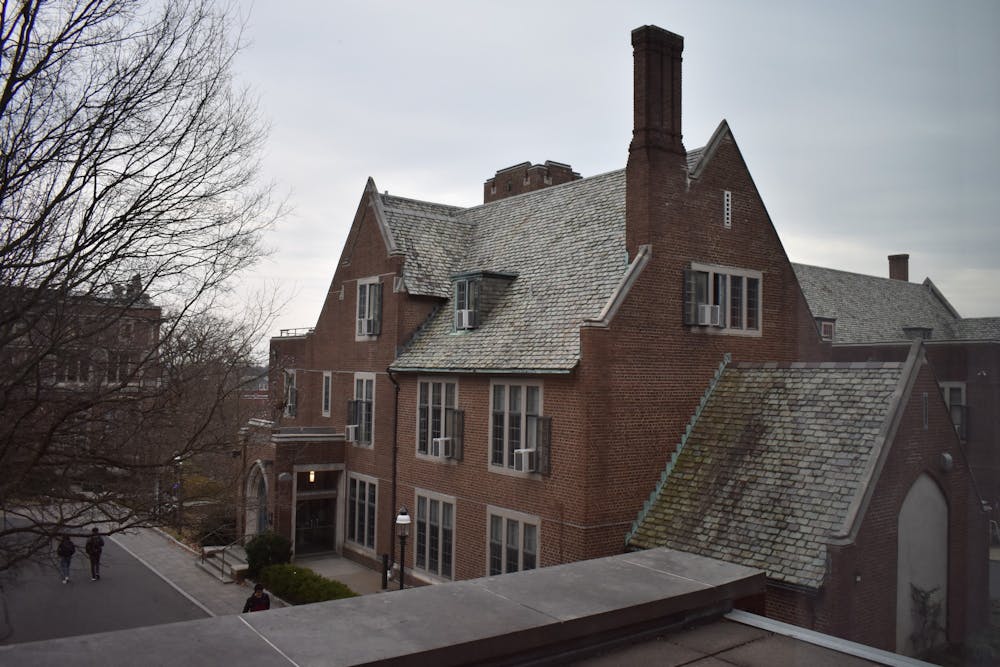“McCosh is a death sentence,” said a student in passing at a party. Shocking as it was to hear, from what I could ascertain after only a few weeks at Princeton, this sentiment appeared to be the general consensus among party-going first-years. Perhaps the dramatic nature of this quote can be attributed to pure hyperbole. Even so, apprehensive and negative rhetoric towards McCosh Health Center can impact student health in serious ways.
Despite residential college directors making it clear to first-years that McCosh is a confidential, free, and safe resource, many first-years I’ve interacted with appear to be hesitant in McCoshing their friends (sending a student to McCosh for alcohol-related reasons), or being McCoshed themselves. Yet the reasons often cited for such hesitation, including fears of social stigmatization or punitive disciplinary measures, are based on misconceptions that needlessly deter students from receiving necessary medical care.
In order to ensure the safety of our peers, it is crucial that more students, across all years, are made aware of these widely held misconceptions and actively work to combat them.
I believe the greatest source of hesitancy in utilizing McCosh is rooted in the fear that getting sent to McCosh because you are drunk will result in some form of punishment, especially if you are underage. It is not hard to fall into this line of thought, particularly because there is no easily accessible document detailing the University’s protocol for students who are McCoshed, specifically for underage drinking.
I spoke with a first-year and a sophomore about their experiences being McCoshed, on the condition of anonymity. They both emphasized the kindness of the staff at McCosh and the pleasant experience they had meeting with their Director of Student Life (DSL) afterwards. The first-year student told me that her DSL assured her there would be no punitive action taken against her, and he walked through ways to prevent future visits to McCosh. Thus, fear of punishment should not deter students from going to McCosh. While it may be awkward to discuss drinking habits with your DSL, the momentary awkwardness is certainly worth the assurance of your future safety and overall well-being.
Another common misconception is that being McCoshed will incur social stigmatization. Eating clubs, hazing, initiations, and pregames offer a plethora of opportunities on campus for students to drink, leading to circumstances in which you may feel your social status is determined by your ability to hold your alcohol. First-years may worry that being McCoshed will decimate their campus reputation mere months into college.
However, this assumption is not productive. Being McCoshed is only a perceived social stigma, the operative word being perceived. In all likelihood, nobody is really that concerned with whether or not you go to McCosh. In fact, it is likely that no one else will find out, save for the friends who were there when it happened, and they will just be glad that you are safe.
A final reason students may hesitate to use McCosh is because of the time-consuming aspect of the process. Usually, students are held in the infirmary until their blood alcohol concentration (BAC) levels have dipped below a certain threshold, something that can only be achieved through waiting. Because this may take several hours, it can cause students to miss their classes the following day.

But after a night spent roaming the Street, or getting caught in a mob outside of Colonial Club, the odds that you actually wake up for your 9 a.m. Spanish class are slim to none.
So why not spend the night under medical supervision? It is safer and easier to sleep at McCosh than to burden your (probably also inebriated) friends with caring for you, especially if their ability to ensure your safety throughout the night is hindered.
The University clearly has student safety and health in mind when it comes to its policies regarding drinking. The relative confidentiality of McCosh and its purposeful lack of punitive measures are meant to encourage visits to the health center.
The University has done its part, and now it is our turn to dispel the misconceptions of McCosh and being McCoshed.

Ashley Olenkiewicz is a first-year from Porter, Texas. She can be reached at ao8250@princeton.edu.








